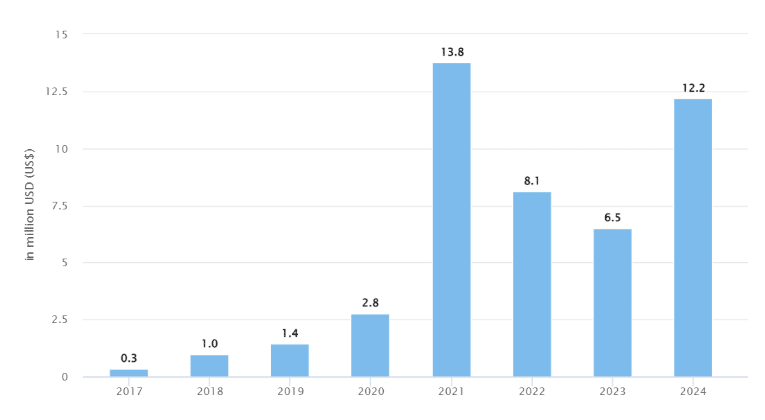- Jordan’s blockchain policy aims to cut costs, ensure data privacy, and transform public services.
- The plan includes blockchain skill-building, startup growth, and attracting global investment.
Jordan has approved the 2025 Blockchain Technology Policy as part of its efforts to modernize government operations and improve public services.
The new policy, announced by the Jordanian Council of Ministers, focuses on streamlining administrative processes, reducing costs, and enhancing service delivery to citizens.
This policy is part of Jordan’s larger plan for economic modernization and digital transformation, which also includes building blockchain-related skills and fostering startup growth.
Jordan’s 2025 blockchain technology policy
The 2025 Blockchain Technology Policy seeks to transform public administration by introducing blockchain into government systems.
Officials say the goal is to automate processes, verify transactions in real-time, and reduce delays in governmental workflows.
The policy places a strong emphasis on protecting citizens’ data. The government aims to use blockchain’s secure infrastructure to ensure data privacy while increasing public trust in state institutions.
The policy will also support startups working with blockchain technology. This includes creating opportunities for entrepreneurs and equipping workers with the skills needed to excel in blockchain-related industries.
Key features of the blockchain policy
With blockchain’s ability to record and verify data instantly, Jordan plans to make government transactions more efficient and accessible for citizens and businesses.
Moreover, blockchain’s decentralized system will create records that cannot be altered, ensuring greater accuracy in government reporting and reducing errors.
Authorities believe this will lead to better oversight of government services.
The government also plans to address the growing demand for blockchain skills. Training programs will be introduced to help citizens develop expertise in the technology.
These programs will not only support government goals but also create new career opportunities in the emerging blockchain sector.
Economic and strategic impact
In recent years, Jordan has shown a growing interest in blockchain and cryptocurrency.
In 2022, the country experienced increased crypto activity as citizens sought ways to address unemployment and other challenges, highlighting blockchain’s potential to address economic issues.


Source: Statista
Broader Middle East context
Jordan’s blockchain initiative is part of a regional trend in adopting emerging technologies to modernize government operations.
For example, Syria has announced plans to legalize Bitcoin [BTC] and digitize its currency in an effort to stabilize its economy and attract investment.
In the UAE, Dubai has approved blockchain-based payment systems for expansion, and Abu Dhabi has introduced a regulatory framework for decentralized technologies.
These steps signal growing interest in blockchain as a solution to economic and administrative challenges across the Middle East.
Source: https://ambcrypto.com/jordan-adopts-blockchain-to-modernize-government-will-it-boost-efficiency/